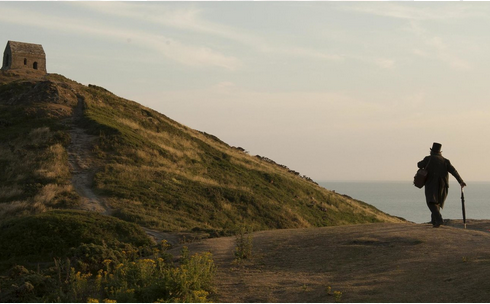TELLURIDE, Colo. — “There is no place for cynicism in the reviewing of art.” Those words — a line of dialogue from “Mr. Turner,” Mike Leigh’s splendid, sprawling film about the life and loves of an artist in mid-19th-century England — are a fine motto at any time, but they are especially germane in the season of film festival frenzy. Looking at movies and thinking about the prizes they might win is a relatively benign and locally contagious form of cynicism. The antidote is the idealism, the sincere love of the cinema, that also flourishes here, nearly 9,000 feet above sea level and almost six months away from the Oscars.
It is entirely possible that, as the conventional wisdom of the moment has it, Benedict Cumberbatch will be nominated for his performance as the British computer pioneer Alan Turing in “The Imitation Game,” and that he will compete against Michael Keaton in “Birdman” and Steve Carell in “Foxcatcher.” All those films made their North American debuts here. So did “Wild,” starring Reese Witherspoon, and “The Homesman,” with Hilary Swank, both films whose Academy-worthiness has been assessed and boosted here.
But let’s return to “Mr. Turner,” anchored by a grunting, shambling, perversely charismatic performance by Timothy Spall, who was rewarded for his labor with the best actor prize at Cannes this spring. It is one of my two Telluride favorites, along with another Cannes laureate, “Leviathan,” a grave and beautiful drama, at once intimate and enormous, from the Russian director Andrey Zvyagintsev. Pictorially ravishing in the best Russian wide-screen tradition, it tells the story of an ordinary man crushed by the corrupt forces of church and state. That’s much too simple, though. Mr. Zvyagintsev layers social commentary, intense emotion and spiritual allegory without ever losing the human dimension of the narrative.
Mr. Leigh’s film, which chronicles the later career of the great British painter J. M. W. Turner, has a great deal to say about the relationship between artistic inspiration and worldly ambition, none of it simple or obvious. There is something bracingly cleareyed and astute about the way Mr. Leigh shows how Turner’s engagement with patrons, colleagues and critics is part of the work of realizing that vision.
Read the rest at NYTimes.com
